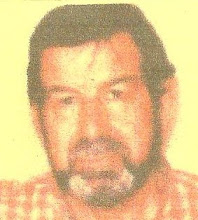By
Dr. Mahmoud S. Audi
On Friday 22 February 2013 Rachel Maddow narrated on her
MSNBC show a program titled “Hubris: Selling The Iraq War,” based on a book by
David Corn and Michael Isakoff of similar title. The one hour long program
demonstrated how the G.W Bush administration scammed us to wage a war on Iraq.
But the question remained: why our government wanted to eliminate Saddam. It is
not the petroleum (oil)!
Iran had been a constitutional monarchy, modeled after the
United Kingdom, since 1906. In 1951 its Prime Minister with near unanimous
consent of its parliament nationalized the oil industry which was nearly
totally owned by British and US companies. Orchestrated by the intelligence
agencies of these two countries a coup d’état in 1953 toppled the democratic
government of Iran which was headed by Mohammad Mossadegh, the Prime Minister.
This action has been the origin of the ill feelings of the Iranians toward the
Western including the United States governments. In 1979, after 26 years of
poppet monarchy, the Iranians rose in a revolution which removed the shah and
established the current Islamic regime.
Iraq had been part of what had been going on in Iran. Both
countries had a long standing border dispute. During the period from 1953 to
1979 the intensity of resentment of the Iranians against their shah was
increasing. Saddam supported the unrest of the Iranian and those who fled their
country to avoid persecution found home in Iraq. Among them was Ayatollah Khomeini, the
Supreme Leader of the revolution. The
shah understandably wanted to suppress the revolution by all means. He made a
move to stop the help which Saddam was giving the Iranian uprising. He
negotiated a solution to their age old border dispute. The agreement included
stopping aide to the Iranians and eliminating any safe harbor in Iraq for the
revolutionary leaders. Saddam expelled Ayatollah Khomeini from Iraq. They
became enemies. The Supreme Leader of the Iranians became an exile in France.
In 1979 the Iranian revolution became the government of
Iran. Many Arabs stood with the Iranian revolution and with the Iranian
government, but not the Arab rulers. In particular the ruler of Iraq: Saddam
Hussein who was annoyed by the popularity and actions of the Iranian revolution
among Arabs including Iraqis. Also there were calls for invading Iraq and other
countries. Saddam waged a preemptive war against Iran. The United States and
other Western and Arab governments resented the Iranian revolution and so an
opportunity for revenge. So they clandestinely supported Saddam by all means
necessary to win. The war lasted eight years. It ended in 1988 when the United
States mistakenly shot down a civilian Iranian airplane over the Gulf. When the
Iranian Supreme Leader ordered the hostilities stop, Saddam declared victory.
During the war the West supplied Saddam with all kinds of
traditional and advanced weapons. As a result of this transfer his arsenal of
weapons made him ready for another conflict if he chose to have one. He also,
as widely believed, had a million well trained and highly experienced soldiers.
Riding on this wave, Saddam seemed to assume leadership of the Arab world. So
what did he do?
He invited the Arab leaders to a conference in Baghdad. They
answered the call including Hosni Mubarak, the then president of Egypt, but the
Syrian president, Hafez Al Assad, who with Saddam belong to the same Baath
political party. In the conference Saddam, in my opinion, insulted some Arab
leaders. One of them was King Fahd of Saudi Arabia, whom I personally respect.
He also called for the establishment of a fund to support the Palestinians and
the Jordanians.
So, who should had been worried about the schemes of Saddam?
It was not Saudi Arabia and it was not Syria.
After the 9/11 terrorist attack on the United States almost
all the Arab governments including the Iraqi government condemned the attack
and offered to help the United States in any way they could. But in one of the
press conferences, in an answer to a question about what he thought about the
9/11 attack, Saddam said: “He who plants the seeds of hatred harvests
hatred.”This was played on American Televisions a number of times. What Saddam
said is a general advice given by a father to his son. But President Bush was
no son to Saddam.
I believe you can now figure out who wanted Saddam demised!
Let me help you: Forget the weapons of mass destruction.
